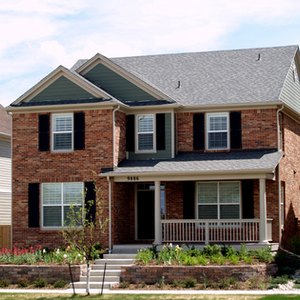
The “true cash value” of a home would be its expected selling price that could be obtained through a private sale (as opposed to an auction or forced sale). True cash value is a term that is commonly used by property tax assessors. In many states, the assessed value of a home is 50 percent of what the assessor considers the home’s true cash value.
Begin With Your Property Tax Bill
Review the property tax bill for the home in question. Look for the assessed value of the home, then double it. The figure derived would be what the assessor considers to be the true cash value of the home, if sold on the open market and not in a forced sale.
Examine your property tax bill to see what, if anything, the assessor may have missed. The assessor takes a number of factors into consideration when estimating the true cash value of a home. Examples would be number of bedrooms, size of the lot, whether the home is brick, stick-built, or of modular construction, number of bathrooms, etc. Visit the assessor’s office and ask to see how the value of your home was computed. If you tore down a garage but the assessor still shows that you have it, or you have a fireplace, barn, hot tub or swimming pool but the assessor didn’t note it, the true cash value from which the assessor derived your assessment may be incorrect.
Examine market information and property tax data for similar, nearby properties. Appraisers rely heavily on what they call “comparables” in determining market value for a property. Try to find at least three comparable properties to compare your home’s true cash value.
Hire a professional appraiser. If you find your property bill confusing, or are having trouble finding the data you need on comparable properties, consider hiring a professional appraiser. An appraiser will be familiar with similar homes in your area and more qualified to determine the true value of your home.
Compare the numbers you have found. Start with the true cash value as determined by the property tax appraiser (double your assessment value). Compare that to the market data you gathered for comparable homes and the number provided by a professional appraiser, if you hired one. Are the numbers similar? If one estimate seems significantly out of line, try to determine why. If all sources are in close agreement, chances are good that you have an accurate estimate of the true cash value of your home.
References
- U.S. Master Property Tax Guide (2009): CCH State Tax Law Editors; 2009
Writer Bio
Cari Haus has authored or co-authored a score of books on topics ranging from business and health to parenting, faith, and life. After earning a B.B.A. from Andrews University in 1982, Haus became a C.P.A. in 1985. Lately she has been writing business articles for the newsletter Real Estate Advisor.

